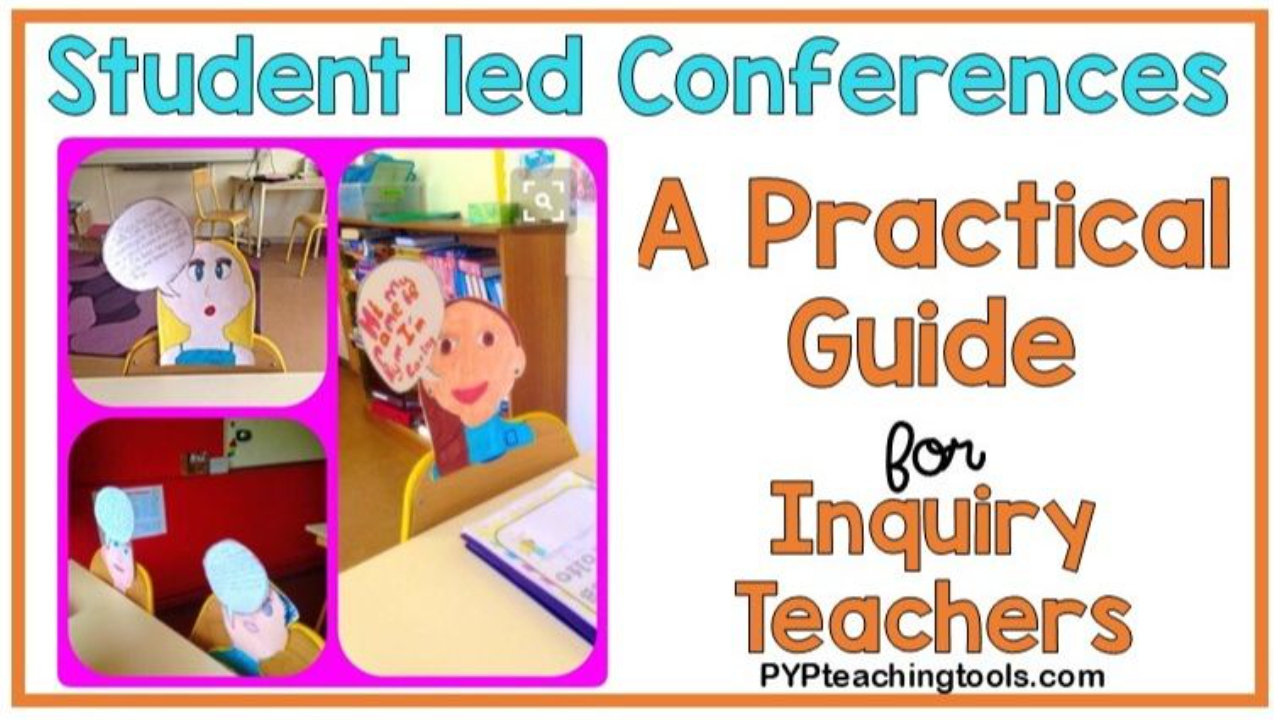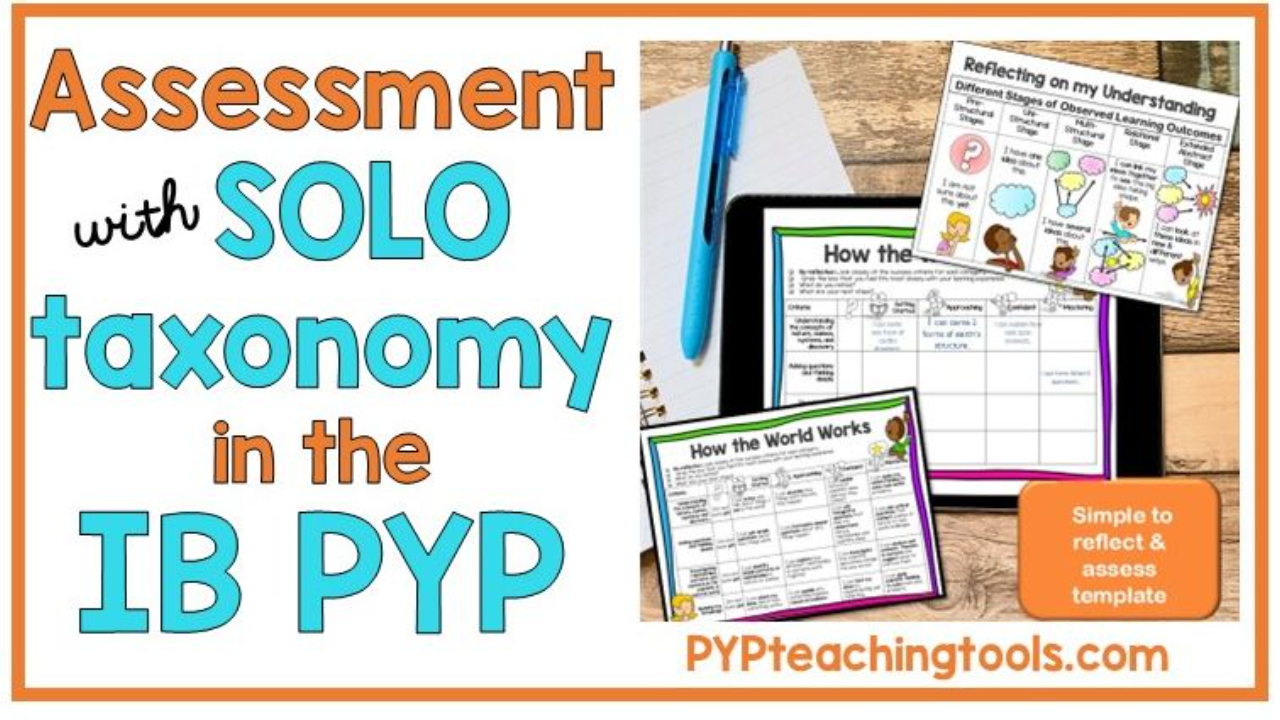Welcome to PYPteachingtools.com
IB PYP Student-Led Conferences: A Practical Guide for Teachers

😊If you know, you know! Student-Led Conferences (SLCs) remain one of the most powerful celebrations of learning. When done well, they put students at the centre of their learning story, build reflection, communication and self-assessment skills, and strengthen the partnership between classroom and home. This updated guide for PYP teachers emphasises agency, co-planning, hands-on experiences and practical ideas you can use in your classroom... and even extend into family learning experiences.
What Makes a Powerful PYP SLC?
An IB PYP student-led conference shifts the traditional teacher-centred format into a learner-centred dialogue. The student:
-
Guides the conversation about their learning journey and goals.
-
Uses evidence from their portfolio to show concepts, progress, and questions.
-
Reflects on how they learn as much as what they learn.
The teacher’s role is to facilitate preparation, support reflection, and create the conditions for student voice and choice. Fam...
Assessment & Reflection: Using SOLO Taxonomy in the IB PYP

Developing Reflective Thinkers: Using SOLO Taxonomy in the IB PYP
Why SOLO matters in a concept-based classroom
In an inquiry-driven IB PYP classroom, assessment is not just about what students know. It is about how they think, how they connect concepts, and how they grow as reflective learners. SOLO Taxonomy (Structure of Observed Learning Outcomes), created by John Biggs and Kevin Collis, provides a simple yet powerful framework to track and support this growth. Let me share how I use it in my classroom to develop and support our culture of on-going reflection.
SOLO describes levels of understanding:
-
Prestructural – The student is missing the point
-
Unistructural – One relevant idea is identified
-
Multi-structural – Several relevant ideas are collected but remain unconnected
-
Relational – Ideas are linked into a meaningful whole
-
Extended Abstract – The learner transfers and applies understanding in new ways
In many ways, SOLO mirrors the learner’s journ...
IB PYP Inquiry & Women's History Month

Women’s History Month Through a Concept-Based Inquiry Lens
March is a powerful opportunity to inspire our IB PYP learners with the stories of remarkable women who have shaped our world. But how can we go beyond simple recognition and create meaningful, inquiry-driven learning experiences? By integrating Women’s History Month across the PYP transdisciplinary themes, we can deepen students’ understanding of key concepts, cultivate research skills, and connect their learning to the Learner Profile in a way that resonates for all ages. In this article, Im offering ideas for connecting this important recognition of women in society with classroom resources that may be able to support your investigations and align with our IB PYP framework.
Connecting Women’s History to the PYP Themes
Each of the six transdisciplinary themes offers a unique lens for exploring the contributions of women throughout history. By narrowing our focus with concepts such as identity, innovation, revolution, chang...
10 Easy Assessment Strategies for Conceptual Understanding in the IB PYP

10 Easy Strategies for Assessing Conceptual Understanding in the IB PYP.
Helping students build conceptual understanding is at the core of how we approach knowledge in the IB PYP. But how do we ensure they’re truly grasping big ideas rather than just recalling facts? I've put together 10 simple, effective ways to check for conceptual understanding at different grade levels ( supporting differentiation and diverse learning styles)—whilst encouraging student agency. Plus, you’ll find links to several resources that I designed for my class to support their self-assessment and reflective thinking practice.
Look for the IB PYP This or That Exit Slips and Reflection Task Cards for Concepts to support deeper thinking across all transdisciplinary  themes. They were such a hit for students and teachers!
themes. They were such a hit for students and teachers!
For Your Lower Grades Learners
-
Concept Sorting with Real Objects
This is an example of internalisation & classification in action.
Provide a variety of real-world objects and have s...
Strategies to Support Reflection & Assessment in the IB PYP
You know that way when your students' reflections are just regurgitated and not really giving us insight as to their conceptual understanding? When it comes to reflection and assessment in the IB PYP, fostering student voice and agency is at the forefront of creating engaged and lifelong learners. At the heart of this endeavour we want our students to truly understand what it means to BE reflective. Not only an attribute of the Learner Profile but being reflective is also a key Thinking Skill. The importance of this skill comes into play when we are assessing the concepts around which we plan and implement our inquiries. Concepts serve as the backbone of the IB PYP curriculum. Concepts not only deepen understanding but also empower students to take ownership of their learning experiences.
Easy Strategies to Develop Reflective Thinkers

I'm excited to introduce a powerful approach to enhance reflection and inclusive assessment in the IB PYP through the lens of conceptual awareness. ...
Why Concept Based Learning Works in the IB PYP

Newsflash: Concept based learning is not exclusive to the IB PYP and it is not new. It may be buzzing around right now but it is certainly not simply the latest buzz word. It is how we have brought depth to understanding and transferrable knowledge within inquiry, ANY inquiry, in ANY subject, for a very long time. If you are just now learning about a concept based approach to learning, then welcome. You will never go back from here. :)
Form: What is Concept-Based Inquiry?
If you are new to this idea, consider that working from a concept-based approach to inquiry is going to bring two approaches to teaching together. We are merging inquiry-based learning with concept-based learning to produce this multi-dimensional approach that supports student agency, develops 21st century skills, amplifies understanding and enhances transfer of knowledge.
Traditional learning typically chases facts and skills, bringing a two-dimensional approach to teaching and learning. Knowing facts is not e...
Enhancing Conceptual Understanding in the IB PYP: The Power of Concept Maps in the Classroom

CONCEPT BASED LEARNING:
Concept maps are a valuable thinking routine in the inquiry based classroom. They visually represent relationships between concepts, fostering critical thinking and facilitating the exploration of complex ideas. For teachers navigating the terrain of inquiry-based learning, leveraging concept maps can be a game-changer in supporting students' conceptual understanding. If you havent tried them, I promise you....pick one, train your kids how to use it, then sit back and watch the magic unfold.
Why I'm A Fan: I’ve been using these in my IB PYP classroom for years and years and years and, every time, they stimulate thought provoking conversations from the children all whilst aiding in developing conceptual awareness. Simple to implement and integrate into any inquiry, any subject, you will get a lot of bang for your buck!
I usually begin using them as a generalisation tool; part of doing the groundwork in the first week of our inquiry as we are tuning in, unpac...
Project Based Learning in the IB PYP Inquiry


I've shared a lot about project based learning with our Instagram IB PYP community and how it fits into our student-led inquiry framework. Many have asked me if it offers fidelity to the inquiry process, to student agency and to transdisciplinary learning. With this post, my intention is to share my perspective based on my experience and hopefully bring some clarity as to how project based learning fits seamlessly within the unit of inquiry.
There is a common misconception that PBL is not as rigorous or as organic a form of inquiry-based learning. I say, that depends on:
- *Our understanding of an inquiry-based project
- *How we implement the process
- *How we differentiate inquiry
- *How we support student's voice within the project
- *How flexible we are with plans
- *How open we are to multiple strategies
- *How we view structure in the learning environment
View this post on Instagram
Before w...
Tuning Into the IB PYP Inquiry with Collaborative Discussions

As we continue to navigate the dynamic landscape of student led inquiry in the IB PYP and beyond, one thing remains constant: the importance of fostering effective communication skills and nurturing inquiry-driven minds. I'm delighted to share another innovative strategy, albeit not that new, that empowers facilitation of a transdisciplinary inquiry through collaboration and communication skills. Today, I have some strategies for tuning in and developing communicators. And I'm excited to introduce you to a powerful tuning in and provocation tool: Concept Discussion Mats.
Why Communication Matters
Effective communication lies at the heart of the IB Primary Years Programme. It's not just about conveying information but also about collaboration: actively listening, exchanging ideas, and constructing meaning collaboratively. In an increasingly interconnected world, the ability to communicate effectively is a fundamental skill that empowers students to navigate diverse perspectives an...
8 Ways to Use Task Cards in the IB PYP Classroom


8 Ways to Use Task Cards in the IB PYP Classroom for Skills-Based and Collaborative Learning
Can we take a few minutes to chat about task cards as a solution to our constant search for innovative methods to engage our IB PYP students in meaningful learning experiences. Task cards, versatile tools that offer a wide range of applications, are a valuable resource for promoting skills-based learning and collaborative activities in the classroom. They are not only versatile but also provide us with an opportunity to infuse creativity and interaction into our approaches to teaching. In this article, we will explore eight effective ways to use task cards to enhance skills-based and collaborative learning.
1. **Skill Stations:** Create skill stations in your classroom by placing task cards at different learning centres and even around the room. Each station can focus on a specific skill, such as listening to understand, math problem-solving, grammar development, or critical thinking. Encou...

